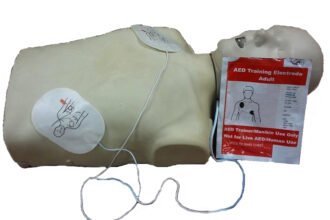Allergies are a common cause of discomfort for many people. The American Asthma and Allergy Foundation reports that 100 million Americans suffer from allergies and that allergies are the sixth leading cause of chronic illness.
Are you one of those people who wonders, “Why do my eyes keep watering?” You will want to know what you can do to make the symptoms more manageable. Of course, allergies aren’t the only causes of watery eyes, so you need to know what other things you can do to deal with them.
Watery eyes can be a bothersome and uncomfortable condition that can interfere with your daily life. Watery eyes, also known as epiphora, can be an annoying eye-related condition that affects people of all ages.
Many factors can contribute to this problem, such as allergies, infections, and certain medications. The prevalence is hard to estimate, but some surveys suggest 1.7% of people have functional epiphora (the clinical term for watery eyes).
In this article, we explore the causes, symptoms, diagnosis, and treatment options of watery eyes.
What are Watery Eyes?
Watery eyes occur when the tear ducts produce an excessive number of tears, leading to the tearing or watering of the eyes.
The excess of tears can be caused by an increase in tear production or a decrease in tear drainage.
This can result in various symptoms, such as blurred vision, eye irritation, and a feeling of heaviness around the eyes.
Causes of Watery Eyes
Watery eyes can have several causes. One of the most common causes is allergies, which can be seasonal or perennial.
Allergens such as pollen, mold, dust, and pet dander irritate the eyes to become itchy, red, and swollen, leading to excessive tear production.
People with allergies may also experience other symptoms, such as sneezing, a runny nose, and congestion. Your allergies may be worse if you live in an area with a lot of allergens.
Infections, such as conjunctivitis or pink eye, can also be the reason behind watery eyes.
This condition is usually caused by a viral or bacterial infection and can result in red, swollen eyes with discharge.
In severe cases, it can also cause light sensitivity, blurred vision, and eye pain.
Watery eyes as a side effect of using certain medications are also a possibility.
Antihistamines, which are commonly used to treat allergies, can cause dryness in the eyes, leading to watery eyes.
Diuretics, which are used to treat high blood pressure and heart failure, often cause fluid imbalances in the body, leading to excess tear production.
Eyelid problems such as drooping or twitching can irritate the eyes and lead to watery eyes. Ptosis or drooping of the upper eyelid causes the eyelashes to rub against the cornea, resulting in irritation and tearing.
Blepharitis, an inflammation of the eyelids, could be another reason for watery eyes, as well as redness and swelling of the eyelids.
Symptoms and Diagnosis
The most common symptom of watery eyes is excessive tears. Other symptoms can include eye irritation, redness, and blurred vision. If your allergies are the cause, then your watery eyes may be accompanied by other symptoms such as fatigue.
Eye irritation can manifest itself as itching, burning, or stinging sensations in the eyes and can be caused by various factors, such as allergies, infections, and dry eyes.
Redness of the eyes can also be a sign of inflammation and can be triggered by various factors, including eyelid problems and infections.
Blurry vision is a common symptom of watery eyes and can occur when excessive tear production causes a build-up of fluid on the eye’s surface. This can lead to distortion of vision and difficulty in seeing clearly.
If you are experiencing persistent or severe watering of the eyes, consider making an appointment with an eye doctor.
Your doctor will perform a comprehensive eye exam to determine the underlying cause of your watery eyes.
Once the underlying cause of your watery eyes is determined, you will be recommended a treatment.
Simple lifestyle changes, such as avoiding allergens or using a humidifier, may be enough to alleviate symptoms of watery eyes.
Treatments for watering eyes
There are various options and treatments for watering the eyes. Depending on your underlying cause, you must undergo different treatments to fix the problem.
For allergies, over-the-counter antihistamines or eye drops may be recommended. In cases of infection, your doctor may prescribe antibiotics.
If medications cause watery eyes, your doctor may adjust your dosage or switch to a different medication.
Home remedies, such as warm compresses or eye massages, can also help relieve the symptoms of watery eyes.
In some cases, surgical procedures such as punctual plugs or tear duct surgery may be necessary.
New Developments and Innovations
In addition to traditional treatments for watery eyes, several new and innovative treatments are currently being developed.
One of these is laser treatment for blocked tear ducts. This procedure involves using a laser to open up a blocked tear duct, allowing the tears to drain properly.
Another emerging treatment is injecting a gel-like substance into the tear ducts to plug them, which can help reduce excessive tearing.
These treatments aim to improve the flow of tears and reduce the discomfort and inconvenience of watery eyes.
While these treatments are still in development and may not be widely available yet, they offer hope for people who have not found relief from more traditional treatment methods.
Prevention Tips
To prevent watery eyes, you should practise taking preventive measures.
If you suffer from allergies, try to avoid allergens such as pollen, pet dander, or dust mites.
Practising good eye hygiene can also help, including washing your hands before touching your eyes and removing eye makeup before going to bed.
Protecting your eyes from environmental irritants such as wind, smoke, and pollution can also reduce the risk of watery eyes.
If you wear contact lenses, proper care and cleaning of the lenses can help prevent eye irritation and watering.
Follow the instructions provided by your eye doctor or lens manufacturer and never share your contact lenses with others.
Finally, taking breaks from using electronic devices and staying hydrated can also help improve eye health and reduce the likelihood of experiencing watery eyes.
Conclusion
With the right treatment, most cases of watery eyes can be effectively managed, allowing better comfort and quality of life.
Identifying the underlying cause of your watery eyes is the first step in determining the appropriate treatment.
Preventive measures, such as avoiding allergens, practising good eye hygiene, and protecting your eyes from environmental irritants, can also help prevent watery eyes.
Remember to seek medical attention immediately to prevent further complications and ensure proper management of your symptoms.










